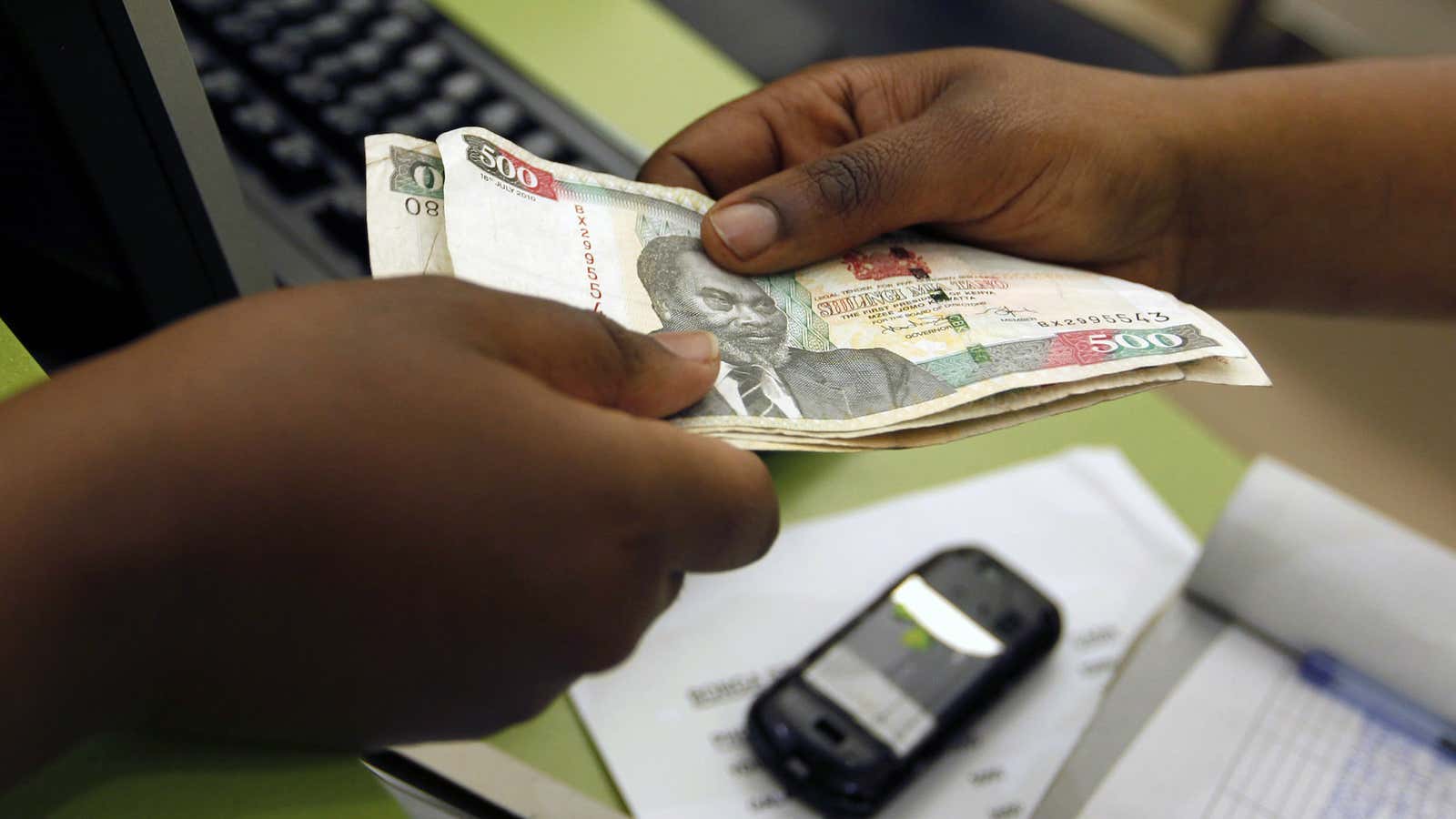The Central Bank of Kenya took out local newspaper ads this week to warn citizens of the dangers of crypto-currencies like Bitcoin.
CBK – “Bitcoin and similar products are not legal tender nor are they regulated in Kenya” #statusquo pic.twitter.com/mdmkxTGMUx
— Winter soldier (@Neloversion) December 15, 2015
Among the concerns it raises:
Virtual currencies are traded in exchange platforms that tend to be unregulated all over the world. Consumers may therefore lose their money without having any legal redress in the event these exchanges collapse or close business. The public should therefore desist from transacting in Bitcoin and similar products.
The CBK isn’t just following the lead of other governments that have warned citizens to steer clear of the unregulated virtual currency. It also is wading into a widening spat between the country’s dominant telecom, Safaricom, and an upstart remittances company that uses Bitcoin, called Bitpesa.
Bitpesa and another start up, Lipisha, are both suing Safaricom for intimidation and cessation of service without notice for blocking their access to Safaricom’s widely used mobile money platform, Mpesa. The day before the central bank’s ad appeared, a Kenyan High Court judge ruled that Safaricom does not have to grant Bitpesa and its partner access while the court case proceeds.
Ironically, the fight is between two companies that are both using technology to improve life for Africa’s emerging but still disadvantaged middle and working classes. Mpesa enables customers—including millions who are “unbanked”—to transfer, use, or store cash on their cell phones. It has helped raise the rate of Kenyan adults with access to formal financial services from to 67% in 2014, up from 41% in 2009. The platform also is being used for a range of other projects, from improving healthcare to giving rural areas access to solar power.
Bitpesa, founded by former development professionals working in micro-finance, aims to reduce the high cost of money transfers for Africans living and working away from home. Africans spend double the global average rate to send remittances. Through Bitpesa, users can transfer bitcoin and then convert it into Kenyan shillings. The two-year-old company has raised more than $1.7 million from investors.
“We were fans of the innovation that Safaricom first shared with Kenya and the region back in 2007-2009, and we watched as other companies built upon this first mobile money network, with iterations taking the technology to places Safaricom alone could never go,” Bitpesa co-founder Elizabeth Rossiello wrote in a Dec. 14 blog post.
The debate over how to regulate Bitcoin also encapsulates the competing interests of innovation and status quo in a country that is dubbed East Africa’s “Silicon Savannah.” Safaricom, founded in 1997, is one of the country’s most established telecom firms and its largest mobile network provider.
It has defended its decision to block Bitpesa by saying the startup does not meet anti-money-laundering laws. (Bitpesa counters that it has complied with these regulations and has received a license from the UK’s Financial Conduct Authority.) Observers point out the fact that Safaricom is also entering the remittances industry with a partnership between South Africa’s MTN Group and its parent company Vodafone that will allow users in both networks, which covers most of east and central Africa, to transfer money across the region on their phones.
One of Bitpesa’s board members and investors, Joseph Mucheru has been nominated to be the country’s cabinet secretary for information and communications technology. He has said that once he is sworn in he will divest from the company, but his views are clear. He told a local newspaper, “It will be a sad day if we fail to embrace this because we are afraid. Kenya cannot be the tech hub of Africa if our own regulations stifle innovation.”
But at least for now, Kenya’s central bank seems to think the caution is worth the tradeoff.
